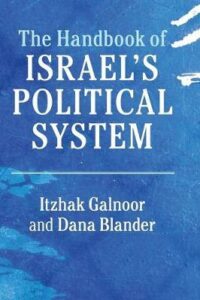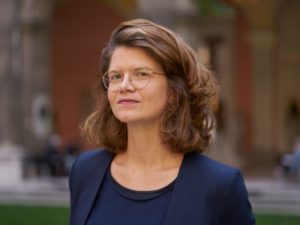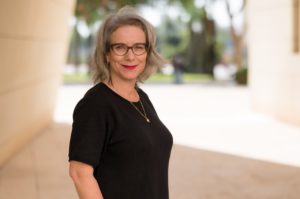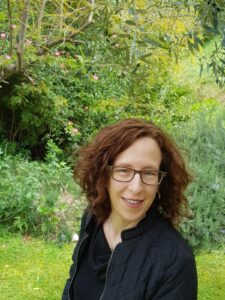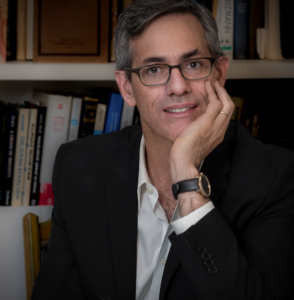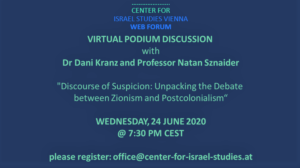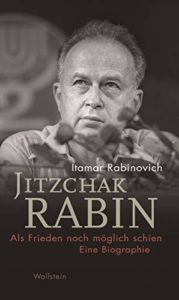

10 December 2019. Imaging the Unimaginable. The Holocaust in Israeli Visual Culture.
Welcome: Mag. Marianne Windsperger (The Vienna Wiesenthal Institute for Holocaust Studies)
Inspiring lecture by Dr. Anat Gilboa (Director of the German Project at Ben Gurion University/ Israel) at the Vienna Wiesenthal Institute, followed by an intellectual discussion elaborating on “Imaging the Unimaginable. The Holocaust in Israeli Visual Culture” Tuesday at the Vienna Wiesenthal Institute for Holocaust Studies.
What is the linkage between an iconic photo “The Boy” from the uprising at the Warsaw Ghetto, that has been “prettified” by a rather unknown Israeli artist, between the outstanding dance performance of Ohad Naharin ”Echad mi Yodea”, photos that break taboos and a number of monuments and memorial sites in Israel?
According to Anat Gilboa these are different expressions of Israeli cultural heritage relating to the Holocaust and commemorating the “Unimaginable” as it is perceived in Israel. The crucial question remains: how do we distinguish between visual culture versus visual art?
Dr. Gilboa uses categories to bring clarification: is it memorialisation, commemoration, re-enactment?
It was fascinating to observe a discussion that expanded into spheres such as gender issues (relating to Nir Hod’s painting “Mother”), to the question what is taboo (relating to the photo of three sisters, Holocaust survivors depicting their pain through showing the tattooed numbers of the concentration camp), to the question of my/your/our Holocaust as perceived by Holocaust survivors as well as by the Mizrachi (the Sephardic) community and by the Arab population in Israel. It’s all about the context one could argue and continue an ongoing debate of utmost importance regarding the loss of oral history, the loss of eyewitnesses and the loss of direct interaction.
With this function, the Center for Israel Studies sets off for a number of lectures dealing with the disappearance of vital voices remembering the „Unimaginable“ . Many thanks to Mag. Marianne Windsperger and the whole team of the Vienna Wiesenthal Institute for Holocaust Studies as well as the ÖIG for this wonderful cooperation.
Dr. Anat Gilboa is the Academic Director of the German Project at the Ben-Gurion University in Israel. She earned her Ph.D. in Art History from the Radboud University Nijmegen in the Netherlands. Her dissertation, entitled „Images of the Feminine in Rembrandt’s Work” was published in 2003 in Europe and the US.
She was invited by the Center for Jewish Studies in the University of Graz, Austria to be their 2019 Guest Professor. Previously, Dr. Gilboa was invited by the UCLA Nazarian Center for Israel Studies to teach courses on Israel. She also held the Schusterman/AICE Guest Professor for Israel Studies at the University of Nebraska-Omaha, where she taught and published an exhibition catalogue, entitled „My Heart is in the East, and I am in the Farthest West“ (2014).
Her expertise is wide-ranging and includes, among others, courses on Israeli visual culture and film; Gender themes in Israeli visual culture; Jewish art; The Bible in art through the ages, as well as the art of the Renaissance and Baroque.


